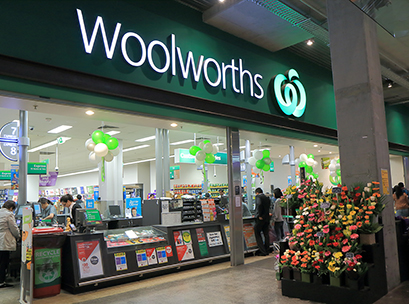 The Fair Work Ombudsman has lashed out at Woolworths for allegedly underpaying and exploiting some trolley collectors, paying them as low as $10 an hour.
The Fair Work Ombudsman has lashed out at Woolworths for allegedly underpaying and exploiting some trolley collectors, paying them as low as $10 an hour.
The Fair Work Ombudsman uncovered during their investigation that Woolworths trolley collectors employed through trolley collection service providers were paid $10 an hour.
During their investigation, the Fair Work Ombudsman also found 79 per cent of the 130 Woolworths supermarket sites visited had indications of some form of non-compliance with workplace laws; 49 per cent presented serious issues, multiple indicators of non-compliance such as reports of underpayments, no time records or payslips.
When the inquiry commenced, the minimum adult hourly rate was between $18.01 and $22.51, depending on whether the workers were full-time, part-time or casual employees. Many of the trolley collectors were overseas workers from India, Sudan, Korea, Lebanon, Syria, Iraq and Iran.
Some of the Ombudsman’s findings include cash payments used to conceal the true identity of employees and the amounts actually paid to them, manipulation of Woolworths’ identity card system, and inaccurate, false or misleading records and failure to issue pay-slips.
Natalie James, Fair Work Ombudsman, said the inquiry was initiated because of an overall lack of improvement in compliance, as well as allegations of violence towards trolley collectors at some Woolworths sites.
“The community is tiring of established businesses claiming they ‘did not know’ what was going on in their networks and labour supply chains, while at the same time failing to put adequate governance arrangements in place,” said James.
“With so many unauthorised layers of contracting, there were cases where the underpayment of workers was inevitable, with the insufficient money being paid by Woolworths for all the contractors to make a profit while meeting their employees’ entitlements.”
James said after a decade of investigating allegations of exploitation at its sites, ‘more was needed than words’ from the supermarket giant.
“We also call on members of the community with any information about the involvement of any person or company in the underpayment of trolley collectors working for Woolworths to come forward and tell us what you know.”
“We were particularly concerned by allegations of threatening and intimidating behaviour towards trolley collectors at Woolworths’ sites in Queensland and South Australia,” she stated.
Four trolley collectors complained that their employment had been terminated after they turned to the agency for help, with one saying the employer visited him at home to “pressure him to withdraw” his request for assistance, the report stated.
“Given the serious nature of the conduct and ongoing requests for assistance from trolley collectors at Woolworths’ sites, we formed the view that a broad examination of compliance with workplace laws by those providing trolley collection services to Woolworths was warranted,” James said.
The Ombudsman’s inquiry found that while Woolworths does have some governance systems in place, these have not been effective — and this has contributed to a culture of non-compliance by its contractors.
It concluded that Woolworths had adopted a business strategy which sought to transfer capital risk to labour through its procurement practices.
The inquiry also expressed concern about statements made by Woolworths which indicate that it sought to transfer its supply chain obligations to comply with workplace law to the Fair Work Ombudsman.
“You see no evil when you hold your hands over your eyes,” said James.
This article was originally posted on Insideretail.com.au
















